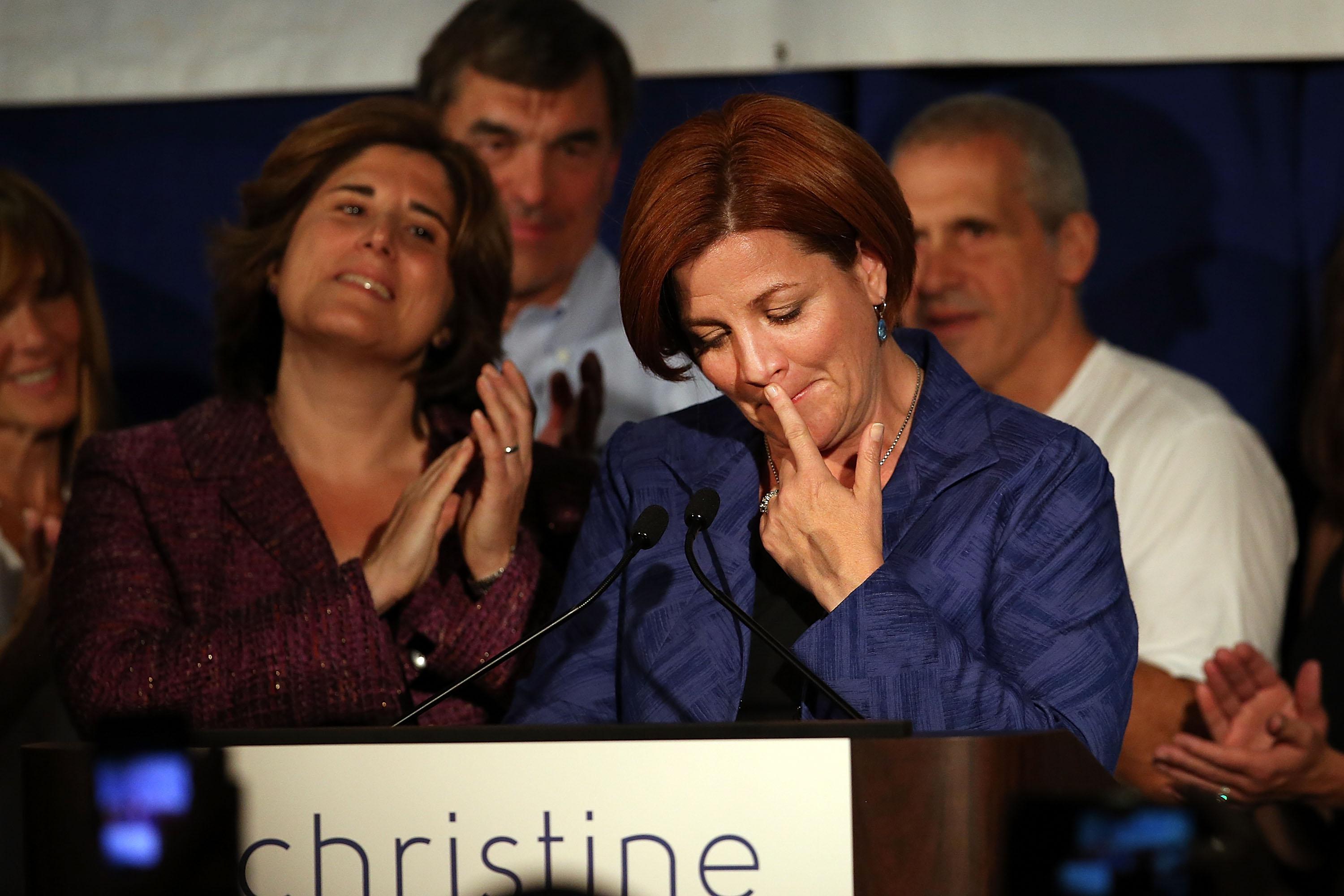New York City won’t have an openly lesbian mayor any time soon. In Tuesday’s election, City Council Speaker Christine Quinn, the early frontrunner to take over from Mayor Michael Bloomberg, came a distant third in the Democratic primary with just 15.5 percent of the vote. What might be more surprising to people who live outside New York is that Quinn even lost the gay vote: According to a New York Times exit poll, 47 percent of LGBT voters supported eventual victor Bill de Blasio, while only 34 percent backed Quinn. How did Quinn lose the gays?
In the end, a shared sexual orientation wasn’t enough to secure the gay vote for Quinn. She simply wasn’t progressive enough to win a liberal city, especially after she supported Bloomberg’s controversial third term, voted against legislation that was designed to cement the illegality of NYPD’s stop-and-frisk racial-profiling policy, and sabotaged legislation that would require employers to offer paid sick days to their workers. As Richard Kim wrote in the Nation last week: “Gay New Yorkers experience their identity inside the warp and woof of the city—as workers, as subjects of police profiling, as working- and middle-class residents who for the last decade have been squeezed out of a city that is now the most unequal in the country. Only the most narcissistic and tribal conception of identity politics would fail to take that more expansive view of life and politics into account.”
Although it is still unclear if de Blasio will clear the 40 percent threshold that would avoid a runoff with second-place candidate Bill Thompson, it’s striking that he drew voters from all around the five boroughs (consider the sea of blue on this map) and from many sectors of the population: He didn’t just get more LGBT votes than the lesbian candidate, he got more votes in majority black precincts than Thompson, the African-American candidate, and he drew more women voters than the female candidate. (The Times exit poll showed him pulling 39 percent of the female vote, compared with Quinn’s 16 percent.) De Blasio was the progressive candidate of choice, and in a race in which stop and frisk was such a key issue (3.5 million blacks and Latinos have been stopped by the NYPD since 2004), a TV ad featuring de Blasio’s 15-year-old bi-racial son, Dante, and his amazing afro helped to demonstrate his bona fides on this issue.
Still, at some point in this stream of explanations, I want to yell, “Stop making sense.” Sure, Quinn was too closely associated with Bloomberg and Manhattan; she made some terrible votes; and there was nothing unique about her stance on gay rights—all the Democratic candidates were solid on LGBT issues. Nevertheless, I voted for Quinn, and I admit that I did so for purely tribal reasons. I wanted to help elect an openly lesbian mayor. I grew up in Thatcher’s Britain, so I wouldn’t do this blindly. But this morning it’s hard not to feel a little hurt by the electorate’s rejection of Quinn. The rest of the city may be over the symbolism of the first gay mayor, but I’m not.
